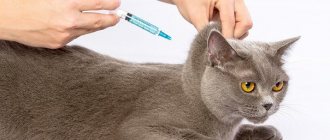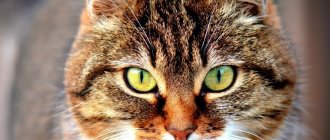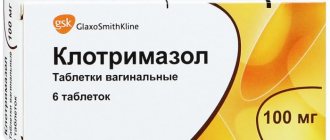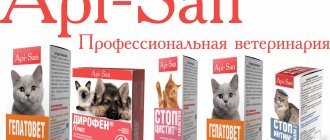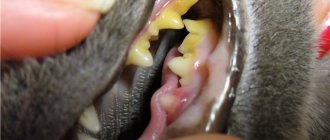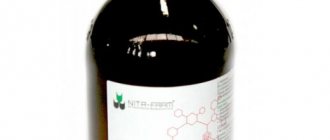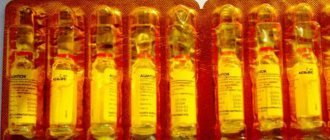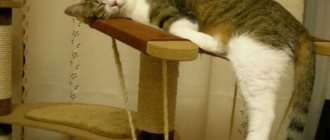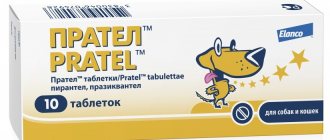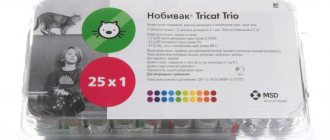Ascorbic acid for cats is popular in veterinary medicine and shows good results in the treatment of the animal. The medicine does an excellent job of increasing immunity, eliminating stress and has a beneficial effect on all metabolic processes in the body of a healthy animal and in various pathologies. Ascorbic acid can be prescribed to farm animals, fur-bearing animals, cats, dogs, and even fish. We will tell you about the beneficial properties and rules of use in our article.
Indications for use
In addition to the fact that Ascorbic acid is given to cats for preventive purposes, it is an auxiliary main remedy for the treatment of the following diseases:
- Replenishing the lack of vitamin C in the cat’s body.
- Chronic diseases and infections.
- Parasitic diseases.
- Stressful state.
- In case of severe intoxication.
- Severe liver diseases.
- For bone fractures, damage to joints and soft tissues.
- In case of large blood loss and to speed up wound healing.
- To support the body after serious illnesses.
- Supporting the body during pregnancy.
- Recovery period after surgery.
Note. For preventive measures, the dosage of Ascorbic acid for a cat is calculated by a doctor after examining the animal.
Review of the best vitamins
Among the manufacturers of vitamin and mineral complexes for pets there are world-famous leaders. They are preferred by experienced breeders and veterinarians. Vitamins for cats, varied in composition, take into account the individual needs of cats in a given period of life, and contain the most suitable combination of compounds in the composition.
For wool and leather
The biggest problem that worries all cat owners is fur. The business card and pride of a furry pet is at the same time a powerful indicator of health.
Vitamins for cat fur are designed to speed up shedding as much as possible and restore the fat balance of the skin. They help make the coat shiny and healthy. This is especially important if the hairline is damaged as a result of dermatitis, fungal infections, or parasites.
The skin and coat complexes contain B vitamins, minerals, biotin, taurine, as well as Omega-3 and -6 fatty acids, which help restore the natural appearance of the integument.
- offers Excel Brewers Yeast Complete Vitamins. Suitable not only for skin and coat, but also for immunity. The big advantage is the natural base: yeast, fish oil, plant components.
- Products from BEAPHAR are no less known on the market than “8 in 1”. Kitty's fortified treats "Taurine-Biotine" and "Mix" contain vitamins E and C in addition to compounds important for skin and coat.
- CANINA produces well-known cat vitamin supplements for skin and coat: Cat Fell OK and Cat Felltop Gel.
- POLIDEX products (for leather and wool – “SUPER WOOL”) are popular. They can even be given to sphinxes - the vitamins will not cause changes in appearance.
- There is also a choice in the domestic segment - this is “Skin and Coat Health” from Doctor ZOO.
Special attention should be paid to products that help remove hairballs during active shedding. The most famous special dietary supplement for cats is GIMPET. Produced in the form of a malt-based paste. You can buy Malt-Soft and Malt-Soft Extra, which will prevent many digestive problems.
POLIDEX produces vitamins for cats for various purposes. The most famous is the specialized complex contained in Gelabon plus Glucosamine. Can be used as a therapeutic component of the diet at any stage of joint or ligament disease. Including in atrophic conditions.
Glucosamine and chondroitin in combination with sulfur-containing amino acids significantly reduce the risk of demineralization. Restore ligaments, cartilage and connective tissue. Allow cats to quickly recover from fractures and other injuries.
READ The most common liver diseases in cats: symptoms and treatment
Cats that are on a natural diet need general strengthening vitamin and mineral complexes designed for regular courses. Vitamins for cats for this purpose are produced by all significant players in the pet products market.
Unconditional leaders:
- Universal vitamin and mineral complex TOP 10 CAT, containing important amino acids. Suitable for the prevention of vitamin deficiency in both adult cats and growing kittens. It is good to add KITTY'S CHEESE treat to your daily diet, which contains a full range of compounds necessary for an active cat. In the BEAPHAR line you can also find a specialized vitamin complex for kittens: KITTY'S PROTEIN.
- GIMPET produces pastes that are convenient to add to a natural diet - GrasBits and Multi-vitamin Paste.
- “8 in 1” offers the Excel Brewers complex supplement, which has proven itself over long-term use.
- The undisputed leader in CANINA cat health products is CAT-VITAMIN Tabs, which can be used on a daily basis.
- In addition to its general strengthening effect, the Multivitum complex restores metabolism well in cats that have just given birth.
- Vitamin supplements, produced in paste form, are available in the TRIXIE line. This is Multi-Vitamin-Paste.
- Doctor ZOO. Offers a good selection of a wide variety of meal additions and treats.
For immunity
Vitamin complexes for cats, which are produced as general tonics, are mostly suitable for immunity. However, in some cases, cats need additional components that increase overall body tone and increase resistance to external negative factors.
Among them is Petvital Bio-Aktivator, which is produced by CANINA. It contains about 18 amino acids that have a beneficial effect on the functioning of all body systems, as well as a complex of minerals and vitamins. PETVITAL Energy-Gel and Derm Liquid will also act as serious immunomodulators.
The ANIVITAL line includes the professional Feli Immun complex, which is prescribed even to small kittens who have difficulty with the transition from maternal feeding to regular feeding. Stimulates the immune system and helps elderly cats cope with negative environmental factors. Recommended for long-term stress, after infectious diseases, as well as for those cats who are constantly in a confined space.
For teeth and bones
Vitamins for cats with calcium are produced by almost all manufacturers of special medicinal foods and treats. The participation of the mineral in basic metabolic processes and its important role as a building material for bones and soft tissues makes the element irreplaceable. Therefore, calcium standards agreed upon by veterinarians are contained in all supplements.
By choosing vitamin and mineral complexes from BEAPHAR, GIMPET, “8 in 1”, CANINA, POLIDEX for your cat, you will provide your fluffy with the necessary amount of calcium.
At certain points in your pet’s life, you may need a special complex. An increased amount of calcium is needed by a lactating or pregnant cat, kittens at risk of rickets, and elderly cats with dental problems. In this case, you should pay attention to BEAPHAR mixtures. For example Irish Cal.
Vitomax has a good alternative. This is a balanced vitamin and mineral complex “For teeth and bones of cats with calcium and phosphorus.”
Perhaps nothing affects the health of a pet more than the period of pregnancy and lactation. And this applies not only to cats. The future life of the offspring depends on a sufficient amount of vitamins and minerals. Therefore, it is necessary to select vitamins as responsibly as possible for pregnant cats, as well as lactating purrs.
Particular attention should be paid to the presence of vitamin E, calcium and folic acid. However, ideally, the appointment should be made by a veterinarian. Don't be surprised if he recommends buying kitten kittens. They contain everything necessary, including for the mother cat.
The most well-known vitamins for nursing cats are:
- A complex that is suitable for Junior Cal kittens;
- Universal vitamins in powder form that will have a good effect on pregnant cats - Nutrimin Cat;
- The wide range includes a universal emulsified tonic, which contains, among other things, folic acid, necessary for pregnant cats - Canivita.
READ The cat has kidney stones: symptoms and treatment
Budget analogues can be found from domestic manufacturers, for example, in the Radostin and Farmavit NEO line.
For kittens
At the time of active growth and formation of the body, the kitten requires a large amount of building materials. Changing teeth, molting, the transition from maternal feeding to regular feeding, the stress of moving to a new family, vaccinations, deworming, castration - all this requires powerful external feeding. Vitamins for kittens are the key to future health and peace of mind in the family. You can lay a strong foundation by:
- BEAPHAR, which offers its own developments KITTY'S Protein and Junior, recommended for nursing/lactating cats;
- In addition to the traditional paste - Baby, there are also Baby-tabs for kittens;
- Among the variety of assortments for kittens, you can try Cat Mineral Tabs;
- POLIDEX. The Gelabon plus Glucozamine complex is intended for the formation of a healthy musculoskeletal system;
- Domestic complexes from TM Biorhythm and Doctor ZOO, for kittens.
For older cats
As cats get older, they have special needs. Due to wear and tear, the body requires close attention to metabolic processes, bone tissue, cardiovascular and nervous systems. Therefore, vitamins for a cat that has crossed the threshold of old age must be selected taking into account age-related changes.
Pay attention to the products of the company SANAL; among the many vitamin treats, it produces a special Senior Lecithin complex, based on yeast with lecithin. They stabilize brain function, improve metabolism, strengthen the immune system and increase the tone of the cat’s body.
Dosage and method of administration
The drug can be injected into cats intramuscularly, subcutaneously and intravenously, and Ascorbic acid can also be given to cats orally. The dosage is calculated by the doctor depending on the weight of the animal, its physiological characteristics and the severity of the disease:
- Intramuscularly, subcutaneously - 0.1-0.2 ml per 1 kg of cat weight. The injection is given 1-2 times a day.
- Intravenously - as a rule, the drug is administered together with a 5% glucose solution (the proportions are determined by the doctor) once a day.
- Orally - the powder or crushed tablet is diluted with water and given to the mouth of a cat or dog. You can add vitamin to the food. The daily norm is 25 mg per 1 kg of animal weight.
Note. It is better for animals under one year of age to take vitamin complexes. But in some cases, it is vitamin C that is needed. Whether a cat can take ascorbic acid is decided by the veterinarian, depending on the test results.
Injections
What is it prescribed for?
Injections are used in situations where there is a need to create the required concentration of a substance in the blood in a short time. Injections are necessary if the dog suffers from an inflammatory or infectious disease in the acute or chronic stage.
In addition, the introduction of ascorbic acid into the blood is necessary for diseases of the digestive system accompanied by vomiting and diarrhea. In addition, such diseases do not allow the animal to digest food and vitamins in the form of tablets or pills.
How to dilute with glucose?
Ascorbic acid intended for injection can be diluted with glucose. This is done if the animal requires support for the body in conditions of serious illness, pregnancy, or high physical activity.
The proportions of the ingredients are 1 to 4. This means that for 8 ml of glucose (5%) you need 2 ml of ascorbic acid in ampoules (5%). These proportions can only be changed in the direction of increasing the amount of glucose. The dosage of vitamin C should correspond to the above standards.
Ascorbic acid can only be mixed with glucose at a 5% concentration. Higher concentrations are not acceptable.
Veterinarians also prescribe a mixture of cocarboxylase, ascorbic acid, glucose and sodium chloride. This injection is carried out subcutaneously at the withers.
How to inject?
The injection method depends on the components of the solution and the condition of the animal. If it is necessary to introduce only ascorbic acid in small quantities, then this should be done intramuscularly into the thigh - into its inner or outer part.
Before the injection, you need to part the fur and lubricate the area of skin with alcohol. The introduction is carried out slowly, since ascorbic acid injections are painful.
Precautions and application features
Along with contraindications, there is also the concept of prescribing with caution; we will consider in what cases:
- During pregnancy, the cat is prescribed with caution and administered slowly in reduced doses, which the doctor calculates individually.
- In case of renal failure, minimal doses are prescribed.
- Also prescribed in minimal doses for leukemia and anemia.
- If a cat has progressive malignant tumors, then the drug is used when the benefit outweighs the risk.
How does vitamin deficiency manifest itself in cats?
The first sign of the disease is a decrease in general tone. Then the coat begins to lose its shine, becomes greasy in appearance and unkempt, and it may fall out and areas of baldness may appear. The animal strives for solitude, sleeps a lot, and loses its appetite. Sores and sores may appear on the skin, and itching begins. At first, the disease usually proceeds secretly, its clear signs appear in the second stage.
The lack of a particular vitamin is characterized by a certain symptom.
Vitamin A deficiency
The most painful effect of retinol deficiency is on kittens, both newborns and adolescents.
First of all, the mucous membrane of the eyes suffers, conjunctivitis develops, quickly turning into an acute form. The epithelium of the small intestine is damaged, which causes diarrhea.
An adult cat may develop “night blindness”, the effect of poor twilight vision, which is simply a disaster for a predator.
The condition of the skin and coat also deteriorates; they become dry, brittle, dull, and dermatitis appears. Females may develop infertility, stress and nervous disorders.
Lack of B vitamins
Biochemically, this group is responsible for many body functions, but primarily for the functioning of the nervous system.
Thiamine (B1) and riboflavin (B2) are responsible for the conduction of nerve impulses. In addition, with their deficiency, the functioning of the gastrointestinal tract deteriorates and hemoglobin drops. With a large deficiency, seizures, epilepsy and muscle paralysis may occur.
A deficiency of this group of vitamins is unacceptable for a pregnant female; this can lead to complications, difficult childbirth, postpartum hemorrhage and illness.
It is the lack of riboflavin that can cause the formation of sores and ulcers in the animal’s oral cavity.
Pyridoxine (B6) is largely responsible for the functioning of the musculoskeletal system, but not only. With its deficiency, arthritis, urolithiasis, stomatitis, gingivitis, and conjunctivitis develop. Lack of B12 leads to the progression of anemia, decreased blood clotting, decreased heart rate, and constipation.
Vitamin C deficiency
It is one of the main natural antioxidants. With its deficiency, the body's immune defense sharply decreases, which manifests itself in permanent stomatitis, gingivitis, periodontal disease, bleeding from the gums and even the loss of teeth by the cat. The elasticity of blood vessels decreases, joint diseases appear, and coordination of movements is impaired.
Vitamin D deficiency
Kittens primarily suffer from a lack of this vitamin. Due to improper development of bones and the entire skeleton as a whole, rickets progresses. Children also suffer from painful growth of joints, brittleness of bones, fractures and sprains, curvature of the spine, and diseases of the respiratory system.
Vitamin E deficiency
This is dangerous primarily for the intrauterine development of the fetus. Lack of tocopherol can also lead to infertility, difficult pregnancies and childbirths, miscarriages, and the birth of malformed and dead kittens. Vitamin deficiency type E contributes to the development of pancreatitis and disruption of the digestive system.
General signs of pathology may indicate not only vitamin deficiency; they are also characteristic of many other, more serious diseases. Only a thorough examination at a veterinary clinic will help establish an accurate diagnosis.
